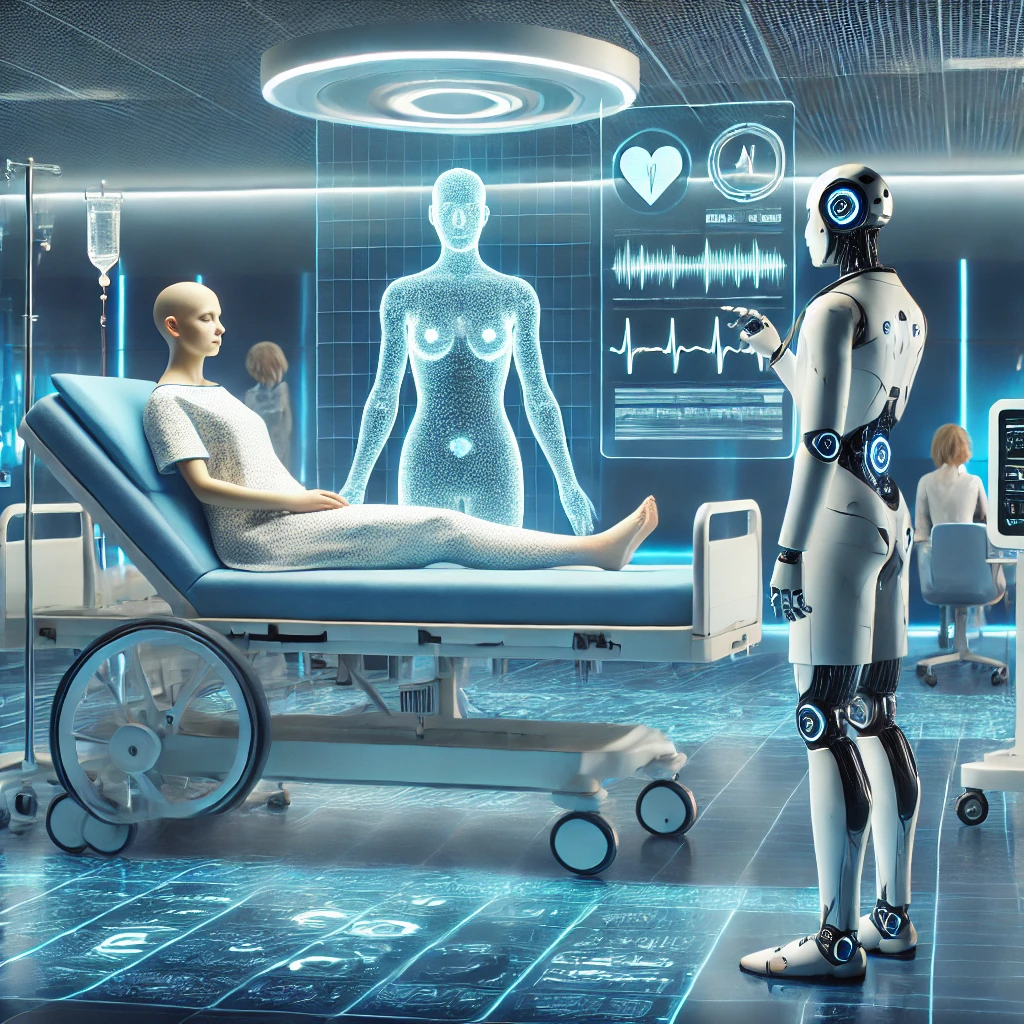
Artificial Intelligence Updates: The Role of AI in Healthcare
Introduction
Artificial intelligence (AI) is no longer science fiction. It's here, revolutionizing industries faster than we ever imagined. Among all sectors, healthcare is witnessing the most significant AI-driven transformation. From diagnosing diseases to performing robotic surgeries, AI is changing the way we approach medicine.
In this article, we’ll explore the latest artificial intelligence updates in healthcare, discuss emerging tech trends, and see how AI tools for daily life are making a difference. Let’s dive in!
How AI is Transforming Healthcare
1. AI-Powered Diagnostics
Gone are the days of waiting weeks for test results. AI-driven diagnostic tools can detect diseases like cancer, diabetes, and even COVID-19 with incredible accuracy. These technologies use deep learning and data analysis to provide faster, more precise results.
2. Robotics in Surgery
Robotic surgery isn't just a futuristic concept anymore. AI-assisted robots like the Da Vinci Surgical System allow surgeons to perform complex procedures with unmatched precision. This means smaller incisions, quicker recovery times, and improved patient outcomes.
3. AI in Drug Discovery
Developing new drugs is time-consuming and expensive. AI accelerates this process by analyzing vast datasets to identify potential treatments. Companies like DeepMind and IBM Watson are leading the charge in AI-driven drug discovery, bringing hope for faster cures.
4. Personalized Treatment Plans
Every patient is unique, and AI understands that. By analyzing a person’s medical history, genetics, and lifestyle, AI can create personalized treatment plans, ensuring more effective care with fewer side effects.
5. AI-Powered Virtual Assistants
AI-powered chatbots and virtual assistants are revolutionizing patient care. They provide instant medical advice, remind patients to take medications, and even schedule doctor appointments—enhancing healthcare accessibility.
The Future of IoT and AI in Healthcare
6. Smart Wearables for Health Monitoring
Smart home technologies and wearable devices like smartwatches and fitness trackers help monitor heart rates, blood pressure, and even stress levels. These IoT-powered gadgets provide real-time data to both users and healthcare providers.
7. Remote Patient Monitoring
The combination of AI and IoT enables remote patient monitoring, allowing doctors to track patients' health in real time. This is particularly beneficial for elderly patients and those with chronic conditions.
8. AI and Mental Health Support
AI-driven mental health apps analyze speech patterns, mood swings, and user behavior to detect early signs of depression and anxiety. These tools are crucial in making mental health support more accessible and personalized.
Innovative Gadgets and AI Tools for Daily Life
9. Smart Assistants in Healthcare
Voice-activated smart assistants like Alexa and Google Assistant now integrate with healthcare apps to provide medication reminders, symptom analysis, and even emergency assistance.
10. AI in Medical Imaging
AI-powered imaging tools help radiologists detect abnormalities in X-rays, MRIs, and CT scans much faster. This leads to early diagnosis and better treatment outcomes.
11. Sustainable Technology Innovations in Healthcare
AI is also contributing to sustainable healthcare innovations. From energy-efficient hospital management systems to AI-driven waste reduction solutions, the healthcare industry is becoming greener.
5G and Its Impact on Connectivity in Healthcare
12. Real-Time Data Sharing
With the power of 5G, medical professionals can share real-time patient data with specialists across the world. This enhances collaboration and improves patient outcomes.
13. Telemedicine Revolution
5G technology is making telemedicine more efficient by reducing lag and improving video call quality, allowing doctors to diagnose and treat patients remotely with greater accuracy.
14. AI-Powered Emergency Response
Emergency response systems are getting an AI upgrade. AI can analyze emergency calls, detect critical situations, and dispatch help faster than ever before.
Conclusion
Artificial intelligence is shaping the future of healthcare in ways we once thought impossible. From AI-powered diagnostics to real-time patient monitoring, the impact of AI is undeniable. As AI continues to evolve, we can expect even more groundbreaking innovations in healthcare, making treatments more effective and accessible to all.
As we keep an eye on artificial intelligence updates and emerging tech trends, one thing is certain—the future of AI in healthcare is bright, and we’re just getting started.
FAQs
1. How is AI improving healthcare?
AI enhances healthcare by providing faster diagnostics, enabling robotic surgeries, personalizing treatment plans, and improving drug discovery.
2. What are the latest AI-powered innovations in healthcare?
Some of the latest AI innovations include smart diagnostic tools, AI-powered virtual assistants, wearable health devices, and AI-driven mental health apps.
3. How does AI contribute to telemedicine?
AI improves telemedicine by enabling real-time data sharing, enhancing video consultation quality, and providing AI-powered chatbots for instant medical assistance.
4. What role does 5G play in healthcare AI?
5G technology ensures seamless data transmission, real-time remote monitoring, and improved telemedicine services for better patient care.
5. Is AI replacing doctors?
No, AI is not replacing doctors. Instead, it assists them by improving diagnostics, automating routine tasks, and enhancing patient care efficiency.